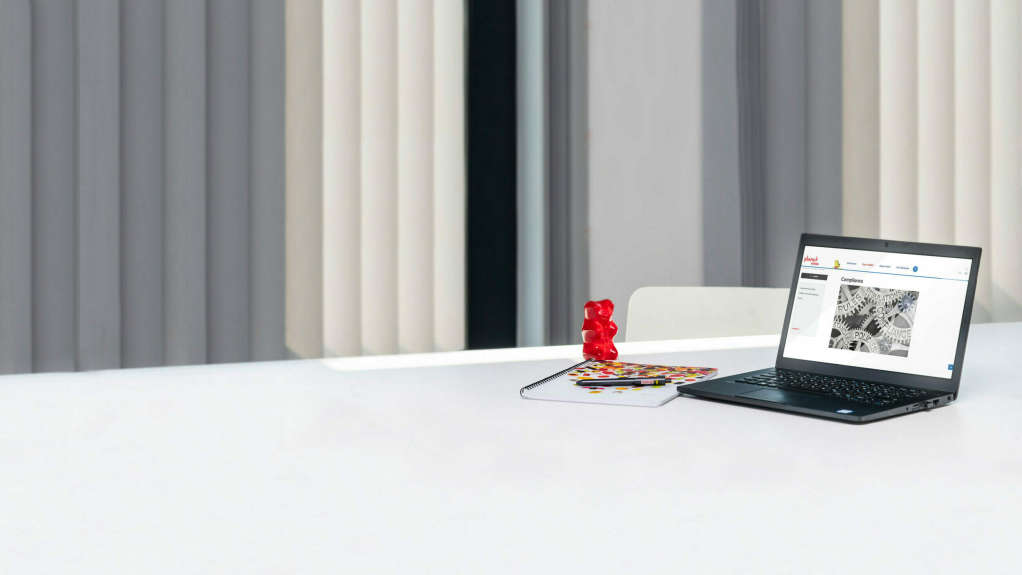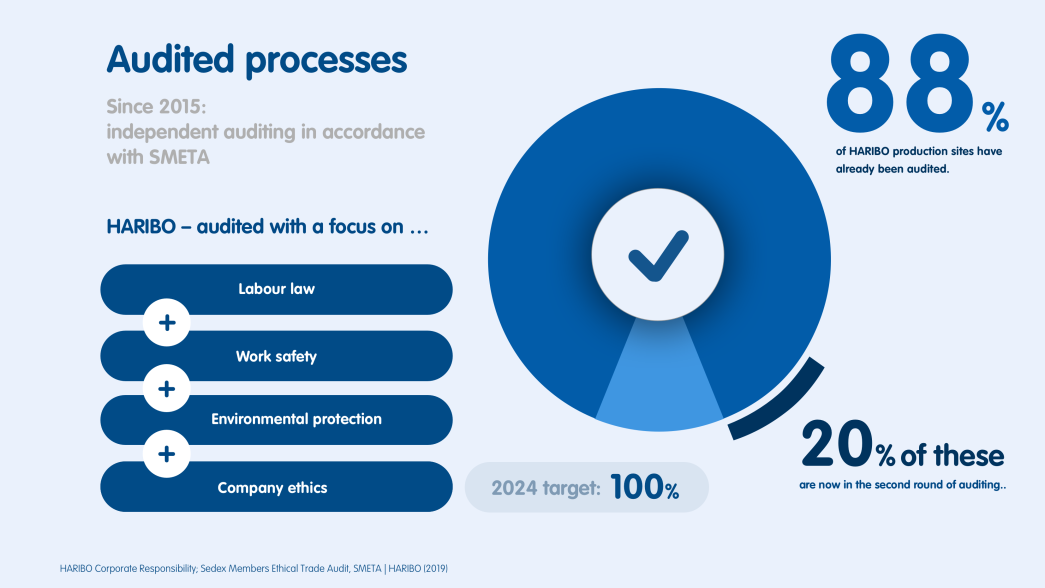Our model for corporate responsibility
Our leading position in the gummies and licorice market goes hand in hand with responsibility. At HARIBO, we talk about corporate responsibility (CR). We present its essential aspects in a model of our responsibilities. The HARIBO model for corporate responsibility is based on four key areas:
Our employees are the key to our success. Good, future-proof jobs have been the very basis of HARIBO since 1920, which is why we focus on aspects such as training and development. Society: for us, society is more than just donating to a good cause. It also forms the environment of our most important stakeholders, which is where we operate as a company. Society is therefore directly relevant to our core business. Our responsibility for the environment is specifically linked to our production processes. Our overriding goal is to keep our ecological footprint as small as possible. Our responsibility is based on high-quality, safe products, with a focus on quality, transparent information and open dialogue with our consumers.
Corresponding structures and processes help us to assess key questions: Where do we stand with regard to our own demands? In what areas do we still have room for improvement? What developments or ideas should we include in our planning?
Our long-term goal
Young and old alike have loved HARIBO products for generations. This is at the heart of our responsibility – something that we, as a family-owned company, have stood for for a century. The basis of our corporate responsibility strategy is therefore that we want to guarantee, by acting responsibly, that consumers all over the world continue to choose our products happily and with a clear conscience in the second century of HARIBO.










